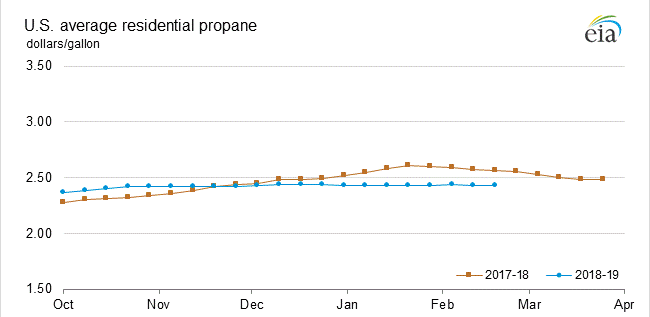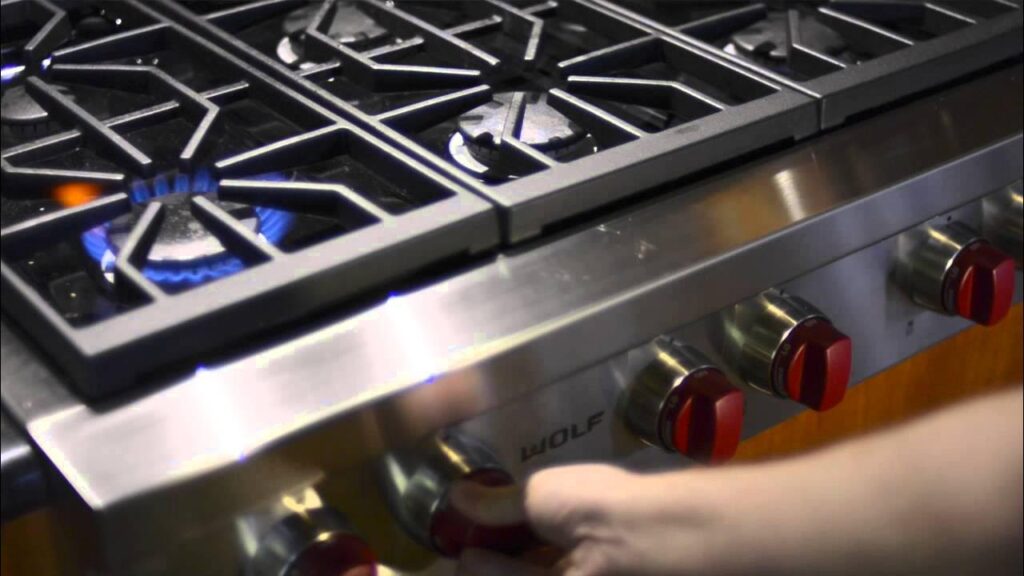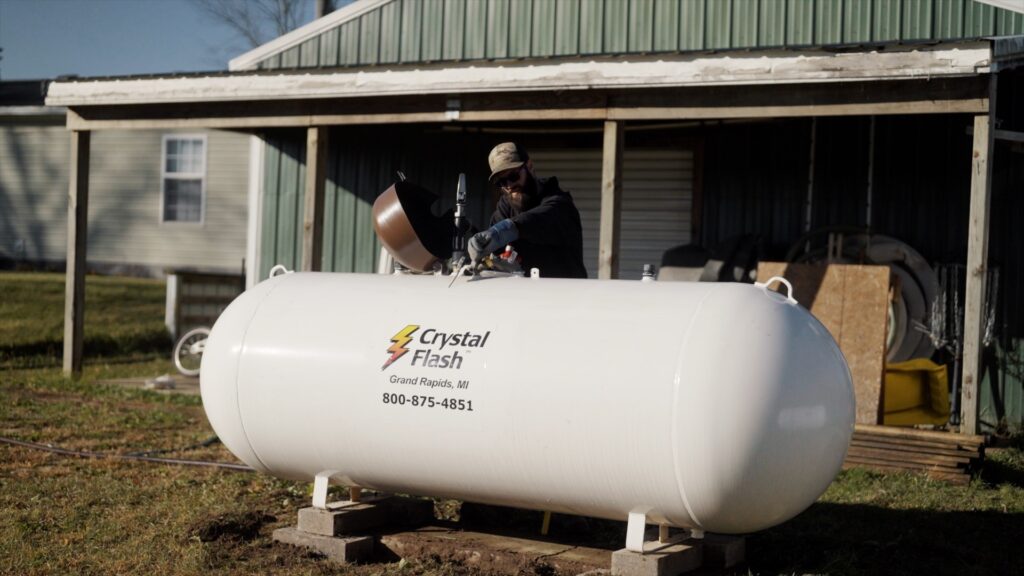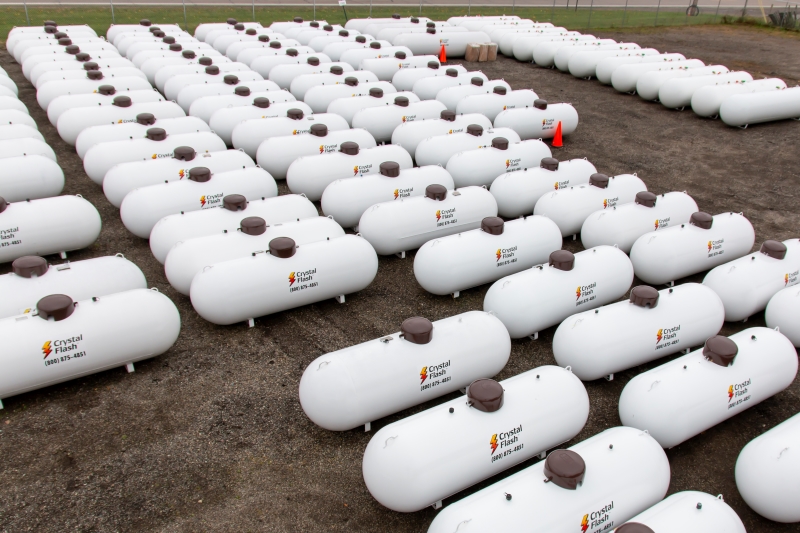When asking around for advice on the type of home heating fuel you should pick for your home heat source, you may soon learn that no one can give you a straight answer. That is most likely due to the many various factors involved in calculating the price of heating your house. The actual cost of each type of fuel can turn out to be a minor factor in your calculations.
There are six primary players in the home heating world:
- Propane
- Heating oil
- Electricity
- Wood
- Natural gas
- Coal
Narrowing alternatives down to two candidates brings you closer to making a decision. For example, if you have concluded your choice of heating oil vs. propane, it’s time to focus on the benefits of these two home heat sources.
Now let’s get down to the nitty-gritty of fuel oil vs. propane.
Working through the costs will enable you to make an informed purchase.
Heating Oil
Crude oil is refined into various products. The refined oil you use in your automobile is not the same as heating oil. You know that diesel and gasoline are different automotive fuels. Residential Fuel oil is another type of fuel as well. Highly volatile gasoline is a lightweight fuel that evaporates suddenly. Gasoline stations post warning signs about switching off your motor, not smoking in the area, and tell you to be wary of fumes. These warnings illustrate the dangers of gasoline and explain that it wouldn’t be really safe to store containers near your house. Gasoline vehicles have the fame of being faster to accelerate, while diesel vehicles are recognized for their fuel efficiency. The cost-efficient characteristics of diesel explain the prevalence of diesel-fueled generators over those that are powered by gasoline. Heating oil was formulated to run furnaces more efficiently than gasoline which is why home heating methods utilize heating oil rather than gasoline.
Propane
Propane is stored as a liquid under pressure until used, at this point, it becomes a gas. Before propane is used, it exists in one of two forms: liquid or vapor. Like water, liquids are fluid, but gases seem to have no appearance, like air. Gas is a term for air-like substances, but some gases can be ignited and used for home heating. You can choose between propane and natural gas for your home heating system unless you live in a rural area without natural gas.
Most of the time, people get confused between propane and natural gas. It’s necessary to understand that natural gas and propane are not the same. Propane is extracted from natural gas or crude oil. Although “natural” means that the gas is naturally occurring, it has to be processed before it gets to your furnace. Natural gas is a combination of gases, but it’s mainly composed of methane, which is created by decomposing plants. Other gases in that mix include butane, ethane, pentane, and propane. These other gases can all be used to create heat; for example, lighters contain butane. However, a mix of those volatile gases going into a furnace is difficult to control, and not all natural gas comes out of the ground with its components in standard proportions. So, “naturally occurring gas” is processed to be classified as “natural gas.”
Propane heat
The properties of propane make it a much better heat producer than natural gas. You should expect propane to be more expensive per cubic foot than natural gas because you need less propane than you need for natural gas to produce the same amount of heat.
Comparing Heating Fuels
Of the liquid fuels available, heating oil is by far the most efficient. Propane is more efficient than natural gas. So when choosing a heating fuel, it is easy to spot the winner, However, when comparing the King of the Liquid Fuels with the Queen of the Gases, the energy industry throws a complicating factor into the ring. Liquids and gases are not expressed in the same unit of measure.
Gasoline, diesel and heating oil are measured in gallons. A little more chaos is introduced into the mix if you read the handbooks of equipment made in Europe – they use liters to measure liquids.
If you’re faced with that complication, you will have to adjust the numbers your furnace guide tells you. A gallon is more significant than a liter – one gallon is the same as 3.79 liters.
Gases are measured in cubic feet. Again, some furnace manufacturers use the metric system to explain fuel supply. In the metric system, the unit used for gases is the cubic meter. In this instance, the metric unit is bigger than the Imperial unit. One cubic meter equals 35.3 cubic feet.
Unit Conversion
If you want to convert cubic feet to gallons, you have more problems on your hands. The gas expands with heat and is usually transported and contained under pressure, which reduces its cubic capacity. Therefore, the quantity of gas will be calculated for a gallon container of a different size, depending on the temperature and the pressure it is subjected to. Fortunately, there is a set of standard assumptions that the industry uses when calculating the conversion of a cubic foot of propane into gallons:
- One gallon of propane equals 35.97 cubic feet
- One cubic foot of propane equals 0.0278 gallons
These conversion factors mean you need to be a math whiz to get a direct correlation of a quantity of heating oil to an amount of propane. If one of the elements in the comparison is expressed in metric units, that conversion is going to get even more complexed.
Thermal Properties
Converting your gallon of heating oil into cubic feet isn’t going to help you decide which of the two fuels is the most efficient. One gallon of heating oil and 35.97 cubic feet of propane do not produce the same amount of energy. This is because the two substances have different thermal properties. One generates more heat with less quantity than the other.
The heating industry applies a standardized unit of measure to express the thermal properties of the fuel. This is called the British Thermal Unit, which you will see denoted as BTU. The heating properties of propane and heating oil are:
- 2,546 BTU/cubic foot for propane
- 140,000 BTU/gallon for heating oil
Of course, a cubic foot is a larger quantity than a gallon. To get a better comparison, you need to convert the BTU figure for propane into BTU/gallon. That gives:
- 91,600 BTU/gallon for propane
- 140,000 BTU/gallon for heating oil]
Fuel Efficiency
There is one more factor that needs to be taken into account when judging propane vs. oil – fuel efficiency. Gas furnaces (both natural gas and propane) convert a higher proportion of their fuel supply into heat than oil burners do. Comparing brand new furnaces, you should expect to get a fuel efficiency of between 89 and 98 percent for propane and between 80 and 90 percent for heating oil.
Assuming you compare the most efficient furnace of each type, you can adjust the relative heat production of the two forms of heating fuel:
- 91,600 x 98 percent = 89,768 BTU/gallon for propane
- 140,000 x 90 percent = 126,000 BTU/gallon for heating oil
Even adjusting for efficiency, heating oil still produces more heat per gallon than propane.
The comparison thus far has focused purely on the amount of heat equivalent amounts each fuel produces. The decision on whether to choose propane vs. oil heat is greatly influenced by the high price of propane heating systems and the higher cost of home heating oil.
Price Factors
The price of heating oil and the price of gas do not stay static. Various pricing factors can make a big difference in the relative cost of either system. The cost of natural gas has been falling steadily in the US over the past few years while the price of oil has risen sharply and dropped dramatically several times so far this century.


Source: Eia.gov
Propane vs. Heating Oil Costs Calculator
As a general rule of thumb, propane is cheaper per BTU than heating oil. However, seasonal factors and location also play a role. The oil industry shuts down its refineries in stages between March and June yearly for maintenance. This event causes an annual price rise in all oil forms in the spring. Industrial action by workers needed for processing or shipping either oil or gas can also modify the relative cost of either fuel.
Propane and oil heating costs vary depending on the delivery location. Some states have higher propane prices than others because of shortages, while others may impose environmental taxes on oil, making it more expensive. The cost of transporting the propane to depots in your area and onto your home can mean your cost considerations will radically differ from the oil vs. propane heat costs in other neighborhoods.
The only way to properly compare prices in your oil vs. propane furnace decision is to get the precise costs that will apply to your home for each fuel type.
Establish a Baseline
If you already have a furnace, you need to decide on whether to keep it or replace it. Heaters become less efficient as they age, and maintenance costs of aging equipment add to the value of heating your home. If you have an old oil furnace, you will save money on your energy bills by merely buying a new oil furnace. Similarly, just replacing an old propane furnace with a new one will reduce your heating costs. However, you need to get a quote on removing your old boiler and installing the new one, and then add that to the total cost of replacement. If you can’t afford to buy a new furnace, you should also find out the financing costs of purchase and add that to your calculations.
You can get a fair idea of how much your old furnace costs to run by adding up all the maintenance fees and the fuel bills over the previous three years. Then divide that number by three. This will give you an average cost per year so you won’t be calculating with figures for an exceptionally warm or cold winter. However, you should use that baseline to work out whether the replacement of your boiler is worth the money. Don’t compare the costs of your old oil furnace with the values of a new propane system. Note your current expenses and then add up the price of a new oil system and a new propane furnace.
While building a new home, you have more options available to you. Sometimes, the cost of re-ducting a furnace with a different fuel system can make the decision to switch fuel types uneconomical. Even if you already have the records of your old heating costs, it is worth measuring the rooms you want to heat and calculating the right-sized furnace for your home. Your existing system may be bigger or smaller than necessary.
Calculate Requirements
Follow these steps to work out the size of the furnace you will need:
Measure all the rooms you intend to heat, taking account of alcoves and bay windows.
Add together the square footage of all the rooms.
Multiply your floor area by your heating needs to get your total BTU requirement. The amount of BTUs of heat you need depends on the type of climate in your region. Old homes in Michigan need 60 BTUs per square foot, and new homes need 50 BTUs. In warmer areas of the country, you would only need 30 BTUs per square foot for a new house and 35 BTUs for an old one.
Calculate Capital Costs
Shop around for prices on oil furnaces and propane furnaces. Look for the following information about each heater:
- BTU per hour input, which will be written as BTU/h
- The efficiency rating, written as AFUE (annual fuel utilization efficiency)
- Tank cost. Are you leasing or buying?
- Recommended lifespan.
- Unit price
- Financing costs
Make sure you only consider furnaces with a BTU per hour divided by the AFUE equal to or slightly higher than your BTU needs. Get quotes for the installation of each furnace you priced. If you already have a heater, also get the cost of removal.
Divide your findings into oil-fueled and propane-fueled groups. Note the total installation costs, plus the purchase price, plus the financing costs of each. Then divide that number by that unit’s serviceable years. Pick the best-priced furnace from each group.
Heating Oil Stats
Calculate Fuel Needs
You now need to figure how much fuel each of your furnaces will use each year. Consider running your heater for six months out of the year in Michigan – from the beginning of October to the end of March as our winters last a long time. Perform the following calculation for each heater.
- Divide the BTU per hour by the expressed as a decimal (i.e., 80% = 0.8).
- Multiply the result by 24, then by 180.
- Divide the propane furnace total by 91,600.
- Divide the oil furnace result by 140,000.
- You now have the total amount of fuel in gallons for each fuel type. Multiply the propane result by 35.97 to get the fuel requirement in cubic feet.
Research Fuel Prices
You can contact us and explain your project to one of our friendly sales team members. We can help you with the pricing of propane or fuel oil. If you don’t want to speak with anyone, you can fill out our contact form.
Finalize Comparison
To complete a comparison of oil furnace costs with propane furnace costs, follow the last few steps:
- Multiply the oil furnace’s annual fuel consumption by the Crystal Flash heating oil price.
- Add the running cost to the cost for the oil furnace and tank.
- Multiply the propane furnace’s annual fuel consumption by the Crystal Flash propane price.
- Add the cost to the capital cost for the propane furnace and tank.
Now you have an exact comparison of the costs of running an oil furnace and a propane furnace in your home. You can fine-tune your estimates by adding in prices for annual maintenance costs for each type of heater.

Refer a Friend
Know someone in need of affordable propane and reliable delivery? Send them our way, and when they sign up with Crystal Flash, you'll get a reward!
Get Started Today
Propane delivery to your home from Michigan's go-to provider.
Our new customer bundle combines our no-hassle Auto-Fill Delivery program with a FREE Crystal Flash Tank Monitoring System.
Subscribe To Our Newsletter
We’ll send you occasional updates about our business and industry. You’ll hear from us about once a month.




